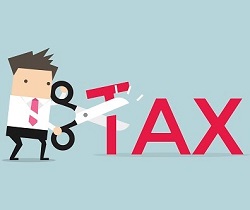IRC Section 174 (a) Updates and the Implications on R&D Tax Credits
The 2017 Tax Cuts and Jobs Act made several changes to IRC Section 174 that took effect with tax year 2022. EPSA can help fill you in on what these changes are and what they mean to the R&D tax credit.
This blog was provided by EPSA USA, a premier sponsor of the PICPA.
By Alexis Martin
 As tax returns are being prepared this spring, we at EPSA are fielding lots of questions about the changes to Internal Revenue Code Section 174 that took effect with tax year 2022. These changes were part of the 2017 Tax Cuts and Jobs Act (TCJA) and, honestly, most industry professionals had been expecting the Section 174 changes to have gone away by now. But here we are in 2023, the alterations don’t appear to be going anywhere.
As tax returns are being prepared this spring, we at EPSA are fielding lots of questions about the changes to Internal Revenue Code Section 174 that took effect with tax year 2022. These changes were part of the 2017 Tax Cuts and Jobs Act (TCJA) and, honestly, most industry professionals had been expecting the Section 174 changes to have gone away by now. But here we are in 2023, the alterations don’t appear to be going anywhere.
Basically, one of the TCJA’s major changes was to Section 174 (a), which eliminated the ability of taxpayers to immediately deduct specified research and experimental expenses and required taxpayers to amortize these expenses over five years (or 15 years for foreign expenses). In late 2022, the IRS issued Revenue Procedure 2023-11 to provide guidelines for the necessary accounting changes for taxpayers to comply with these changes.
Section 174 (a) expenses are more expansive than what is included in Section 41’s Credit for Increasing Research Activities, more commonly referred to as the R&D credit. Because Section 174 discusses “research or experimental expenditures,” the two sections are often conflated. It is important to note that not all Section 174 expenses qualify for the R&D credit, including foreign research, patent-related expenses, and indirect expenses such as overhead and rent. However, a significant amount of the expenses are eligible for the R&D credit, including wage expenses and outside contractor expenses. Many companies in manufacturing, software and technology, engineering, and architecture are likely to have Section 174 (a) expenses to consider.
Because the Section 174 changes may result in an increase in taxable income, Section 41’s Credit for Increasing Research Activities is now more valuable than ever. This credit is still immediately available (as opposed to amortizing over five years) to reduce the amount of tax liability a taxpayer has. If you already claim expenses under Section 174, you’ll likely meet most of the requirements of Section 41.
EPSA USA partners with CPA firms and their clients to ensure you are compliant with Section 174 and Section 41. To learn more, be sure to join our webinar on Thursday, July 13, at 1:00 p.m. EST.
Alexis Martin is CEO of EPSA USA in Philadelphia. He can be reached at amartin@epsa.com, or you can contact the EPSA team for more information.
Sign up for PICPA's weekly professional and technical updates by completing this form.
Statements of fact and opinion are the authors’ responsibility alone and do not imply an opinion on the part of the PICPA's officers or members. The information contained herein does not constitute accounting, legal, or professional advice. For actionable advice, you must engage or consult with a qualified professional.
PICPA Staff Contributors
Disclaimer
Statements of fact and opinion are the authors’ responsibility alone and do not imply an opinion on the part of PICPA officers or members. The information contained in herein does not constitute accounting, legal, or professional advice. For professional advice, please engage or consult a qualified professional.






